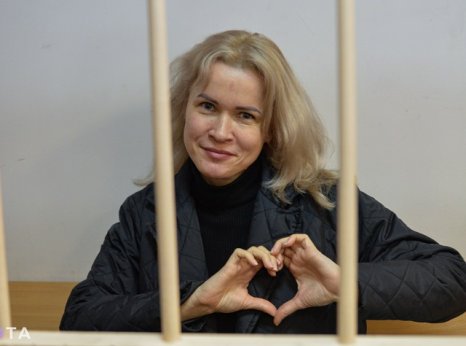Russian Federation: Stop The Inhumane Treatment Of Maria Ponomarenko In Prison

Maria Ponomarenko is an activist, blogger and a journalist from Barnaul, Altai Krai, who worked for the online media outlet RusNews. On 23 April 2022, she was arrested and detained by the police under Article 207.3 (2) (d) (“Public dissemination of knowingly false information about the Russian Armed Forces committed with motives of hatred or enmity”). The “false information” she was accused of disseminating was a 17 March post (which has since been deleted) in her Telegram channel about the bombing of the Donetsk Regional Academic Drama Theatre in Mariupol by Russian forces the previous morning. It contained a video from the theatre made before the attack and a short comment denouncing civilian deaths. On 15 February 2023, a court in Barnaul, Altai Krai found Maria Ponomarenko guilty and sentenced her to six years imprisonment and a five-year ban on engaging in journalism upon her release. The sentence was upheld on appeal. While in prison, Maria was accused with being violent towards the prison officers (Article 321, part 2 of the Criminal Code of the Russian Federation), which she denies. Maria Ponomarenko is a Prisoner of Conscience imprisoned solely for exercising her right to freedom of expression and must be released immediately and unconditionally. She is one of the key cases that Amnesty International will work on in 2024 within the “Protect the Protest” campaign.
During her time in the remand centre and penal colony, Maria reported various forms of mistreatment. During her time in pre-trial detention, she was unlawfully placed in a psychiatric hospital and a punishment cell, and also survived a mental breakdown and a suicide attempt. Earlier this year Maria shared a list of violations of the rights of women prisoners in the penal colonies in Krasnoyarsk region and Altai Krai to women’s rights campaign group she was part of.
In April 2024, it’s now the fourth time that Maria Ponomarenko has been sent to a punishment cell. Two of her previous placements in a solitary confinement were prompted by her ill-health: another was due to her fainting, and another one – for not being able to get up from her bed upon a correction’s officer’s demand due to severe lower back pain. In the first three placements, she’s spent over 1,5 months in punishment cells, sometimes for longer than 15 days in a row. Several other people who received long sentences under the war censorship laws or in relation to their anti-war positions, such as Aleksei Gorinov and Vladimir Kara-Murza, have also been repeatedly placed in solitary confinement, deprived of adequate healthcare and other basic human rights.